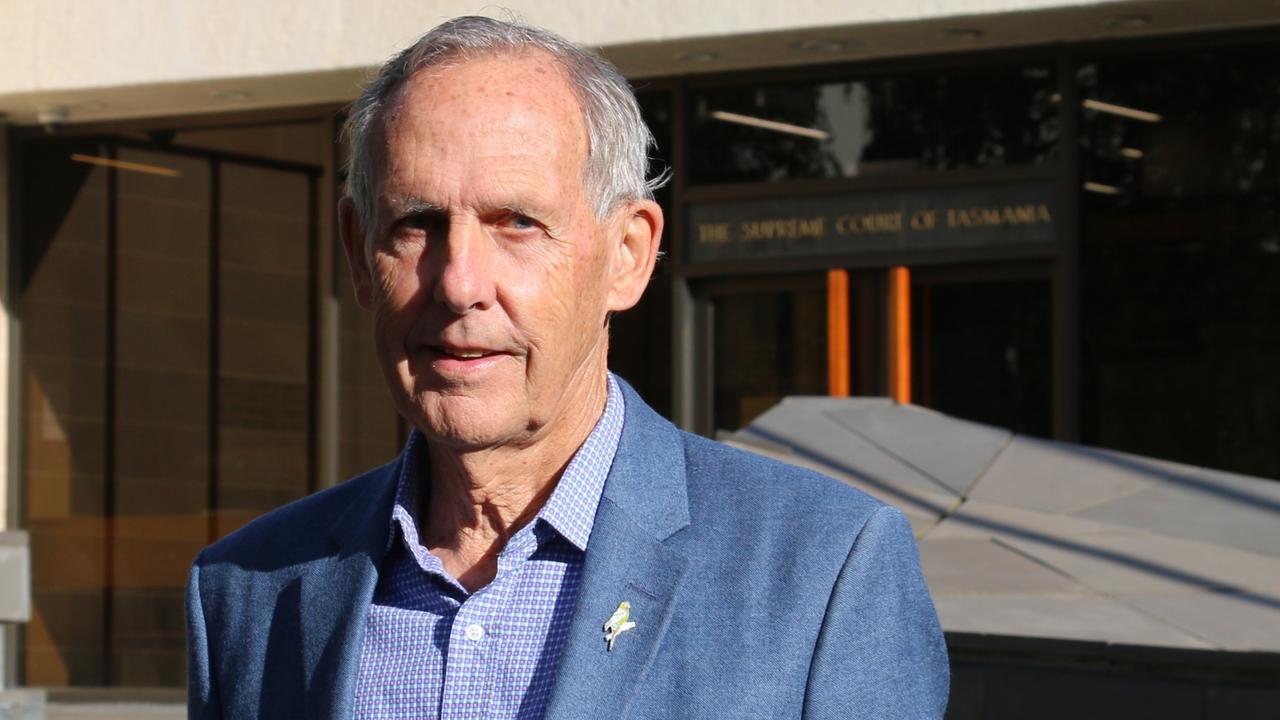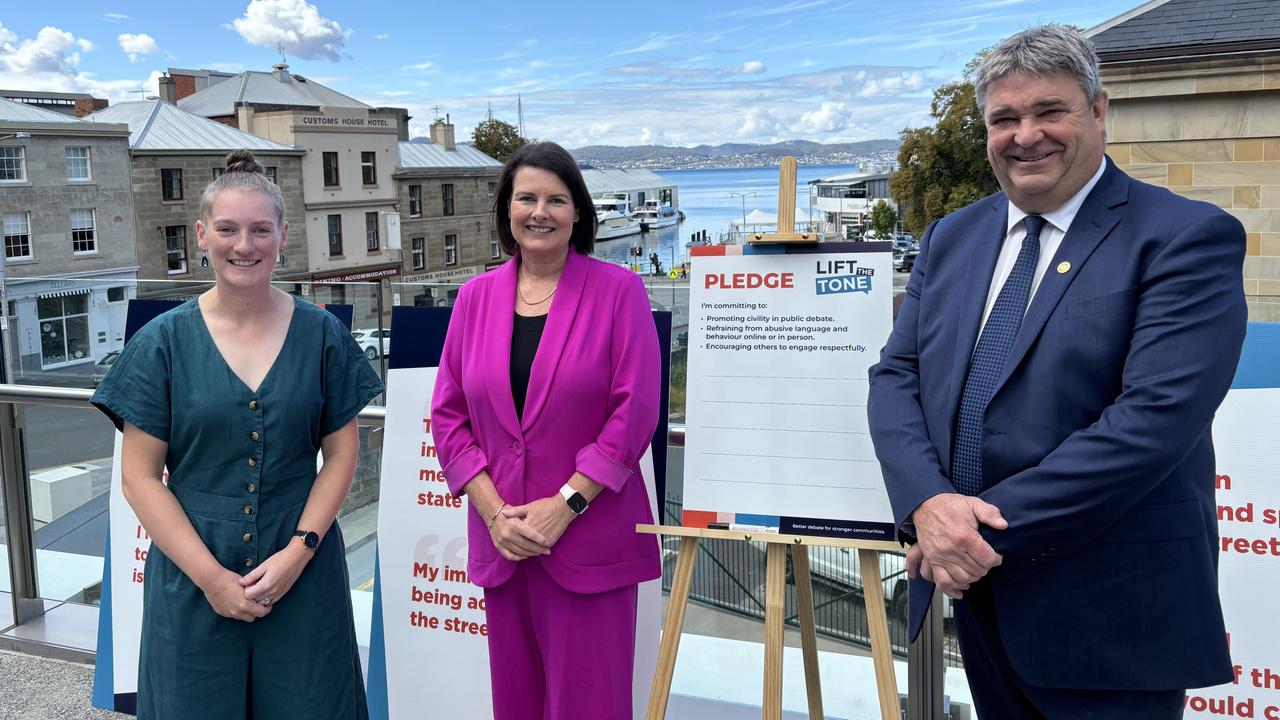Ferries, transport, STEM: Mayors outline federal election priorities for Greater Hobart region
The four Greater Hobart mayors have joined forces to put their top priorities for the city in the spotlight. See what they will be asking of the next federal government.
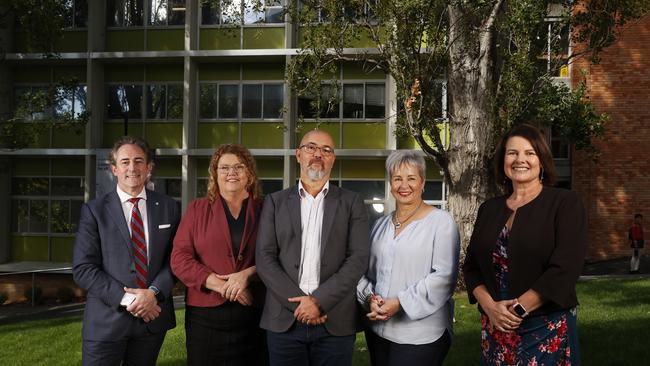
Tasmania
Don't miss out on the headlines from Tasmania. Followed categories will be added to My News.
The four greater Hobart mayors are calling for their “fair share” of federal funding as the election draws nearer and the promises start adding up.
Hobart Lord Mayor Anna Reynolds, Clarence Mayor Brendan Blomeley, Glenorchy Mayor Sue Hickey and Kingborough Mayor Paula Wriedt said Greater Hobart should receive funding that reflects its “capital city status and projected population growth”.
Topping the list of priorities for the four mayors is support for a STEM campus at Sandy Bay and a swath of projects designed to ease traffic woes in the city.
University of Tasmania Associate Dean of Research Performance in the College of Sciences and Engineering Erik Wapstra said the university was looking for support for a dedicated STEM campus to continue the state’s world class science, engineering and maths research.
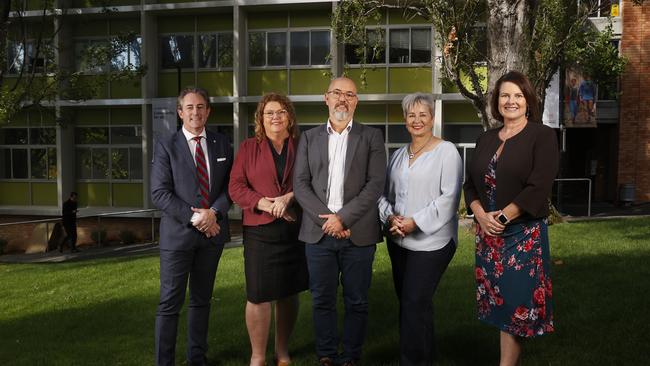
“We do world-class research, but our facilities are no longer world class,” Professor Wapstra said.
“New facilities will allow us to think in new and modern ways for our research and also our teaching,” he said, adding that a collaborative transport solution had always been a pillar of the UTAS vision.
“Students need to be able to get here; get here effectively, efficiently and do so in a sustainable way.”
In addition to delivering the UTAS STEM campus, the greater Hobart mayors are calling for increased investment in active transport, planning for a second phase of the River Derwent Ferry expansion, determining a long-term solution for the Tasman Bridge and delivering the Northern Suburbs Transit Corridor.
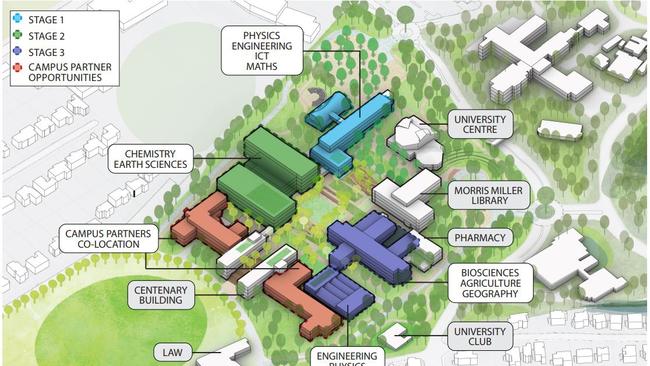
Mr Blomeley said residents should no longer have to suffer through daily “bumper-to-bumper” traffic, caused by a bottleneck at the Tasman Bridge.
Mr Blomeley, who is also running as an independent candidate for the seat of Franklin in the May 3 federal election, said now was the time to start to plan to replace the bridge which is at structural capacity.
“We know [the Bridgewater Bridge] took 25 to 30 years from conception to delivery.
“We don’t have 30 years,” he said.
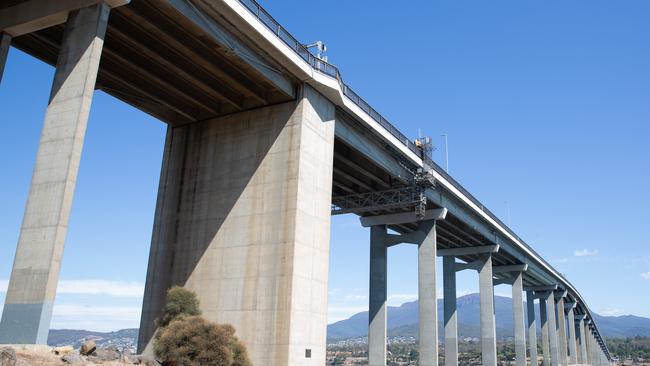
Ms Wriedt said adequate public transport, including more ferries, would be “vital” to keep growing communities moving into the future.
Ms Hickey said it was “absolutely essential” to develop “innovative solutions to get people to jobs, to medical appointments and to education”.
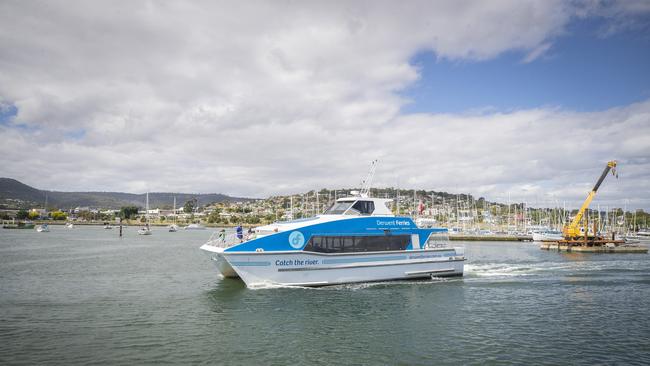
Ms Reynolds said UTAS was uniquely positioned to tackle the challenges facing Tasmanians as a tourism dependent state but required state-of-the-art facilities and not the “outdated” current buildings.
“We are the most tourism dependent economy out of all the capital cities,” Ms Reynolds said.
“While we love tourism, it’s a great industry, we also need to be building our knowledge economy and the future is in science, technology, engineering and maths.”
The project is planned to be completed in three stages, the first of which involves detailed site planning and a retrofit of an existing building to accommodate information and communication technology, mathematics, physics and engineering.




